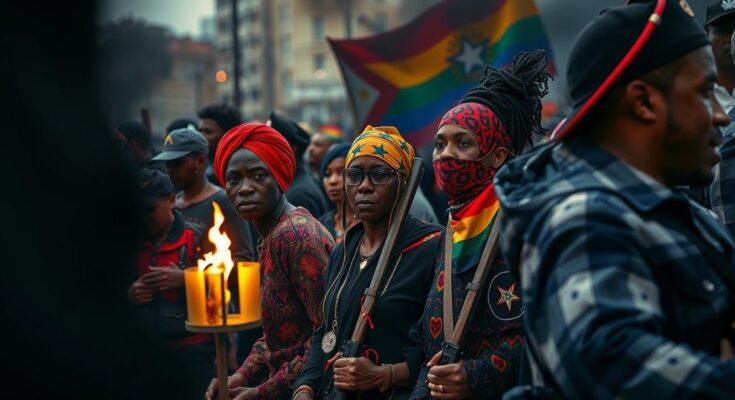In Mozambique, protests after a disputed election resulted in the deaths of at least 11 individuals and left over 50 injured due to police actions. The unrest erupted following the announcement of Daniel Chapo’s victory, inciting demonstrations among opposition supporters. Human Rights Watch and local NGOs reported extensive violence, police use of tear gas, and the urgent need for investigations into these incidents.
Mozambique has become a backdrop of turmoil following a contested presidential election. The death toll from the ensuing protests, as reported by Human Rights Watch (HRW), stands at at least 11, with over 50 individuals injured due to police actions. The unrest erupted after Daniel Chapo, the candidate of the ruling Frelimo party, was declared the election winner, igniting demonstrations from opposition supporters who clashed violently with riot police. As the streets filled with anger and despair, HRW revealed that the security forces had reportedly sent tear gas into residential neighborhoods, affecting innocent civilians, including young children. Eyewitness accounts gathered by HRW underscore the severity of injuries, including gunshot wounds and one tragic case of a victim with a bullet lodged in his spine. Activists have called for accountability, emphasizing the need for a thorough investigation into the police’s use of force. A local NGO, the Centre for Democracy and Human Rights (CDD), corroborated HRW’s findings, confirming at least 11 deaths linked to the protests, predominantly in Nampula province. The waves of arrests reached over 450 people, with many detained in Maputo. While local police reported lower casualties, the unrest revealed deep societal fractures amidst claims of electoral fraud raised by opposition parties. The electoral commission’s announcement of Chapo winning with 71% of the votes has been met with skepticism, prompting Podemos, the leading opposition party, to demand a recount. Observers from the European Union highlighted several irregularities during the voting process, foreshadowing troubles that would follow. This unfolding crisis highlights the fragile state of democracy in Mozambique, igniting calls for justice and reform.
In Mozambique, a country that has seen a mix of challenges since its independence from Portuguese rule in 1975, the recent presidential election has exacerbated tensions between the ruling party, Frelimo, and opposition parties. Human Rights Watch’s distressing report sheds light on the alarming human rights violations occurring amid widespread unrest. This political landscape is marked by decades of ruling party dominance, leading to public outcry when electoral integrity is questioned and violent crackdowns on dissent are implemented.
The recent protests in Mozambique reveal the dire consequences of political dissent as tensions rise following a disputed electoral process. With at least 11 lives lost and numerous injuries reported, the nation stands at a precarious juncture, marked by calls for accountability and justice. The stark realities of police brutality and the struggle for democratic rights echo loudly, urging a collective demand for change amidst a growing crisis.
Original Source: www.voanews.com



